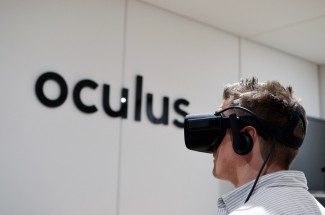Breach of Contract
Defendants: Oculus and Luckey
Jury Award: $0 Luckey / $200,000,000 Oculus
The plaintiffs alleged that Luckey and Oculus had a contract in the form of a non-disclosure agreement (“NDA”) with the plaintiffs, and that Luckey and Oculus breached the NDA. Oculus disputed that it was a party to the NDA, as Luckey signed it in his individual capacity before Oculus was formed. The court explained in the jury instructions that Oculus would be bound to the NDA if the jury finds: (1) Oculus is a “mere continuation” of Luckey’s prior business (because a business that takes over assets from a prior business (even a sole proprietor) may have to assume the prior business’ obligations); and (2) Oculus manifested acceptance of the NDA through its conduct; or (3) Luckey assigned his obligations under the NDA to Oculus (a principle called “quasi-estoppel” provides that a party cannot maintain a position inconsistent with a position to which it previously acquiesced, or for which it previously accepted a benefit).

Luckey and Oculus raised the doctrine of laches in their defense. Laches is an affirmative defense, which means that Luckey and Oculus had to prove by a preponderance of the evidence that: (1) there was a delay by the plaintiff in asserting a right or claim; (2) the delay was not excusable; and (3) there was undue prejudice to the party against whom the claim is asserted (the prejudice can be due to a loss of evidence or the defendant having changed its position in a way that would not have occurred had the plaintiff not delayed).
The jury found that Luckey breached the NDA, but it decided that the doctrine of laches barred the plaintiffs’ breach of contract claim against Luckey. The jury also found that Oculus was a party to the NDA on all three bases listed above: (1) mere continuation; (2) manifested acceptance and (3) quasi-estoppel (one would have been enough). Similarly, the jury found that Oculus breached the NDA. The jury provided an award of $200,000,000.00 in damages for Oculus’ breach of the NDA.
Tortious Interference With Contract
Defendants: Facebook
Jury Award: $0

The plaintiffs alleged that Facebook tortuously interfered with the NDA. In order to establish a tortious interference with contract claim, the plaintiffs had to establish that: (1) the NDA existed between plaintiffs and Luckey/Oculus; (2) Facebook willfully and intentionally interfered with the NDA; (3) the act of interference was a proximate cause of damage to plaintiffs; and (4) the plaintiffs suffered actual damage or loss as a result.
The jury found that Facebook did not tortuously interfere with the NDA, so no damages were awarded. The jury does not provide commentary on which of the four elements plaintiffs failed to prove, so the strength or weakness of this claim is unknown.
Unfair Competition
Defendants: Oculus and Facebook
Jury Award: $0
The plaintiffs alleged that Oculus and Facebook engaged in “unfair competition” with respect to the plaintiffs’ contracts, copyrights, trademarks and trade secrets. “Unfair competition” is a form of unlawful business injury arising out of business conduct which is contrary to honest business practice in industrial or commercial matters. It requires that a plaintiff prove that the defendant committed an illegal act that interfered with the plaintiff’s business.
For the purpose of the case, the potential “illegal act” by Oculus could have been any of the following: (1) misappropriation of trade secrets; (2) copyright infringement; (3) trademark infringement; or (4) breach of contract. The potential “illegal act” by Facebook could have been any of the following: (1) misappropriation of trade secrets; (2) copyright infringement; or (3) tortious interference with the NDA.
The jury found that Facebook and Oculus did not engage in unfair competition, so no damages were awarded for this claim.
Conversion
Defendants: Carmack only
Jury Award: $N/A
The plaintiffs alleged that Carmack “converted” the plaintiffs’ property. The term “converted” means that Carmack wrongfully exercised control over the plaintiffs’ property. To prevail on their claim, the plaintiffs needed to prove that: (1) the plaintiffs owned or had legal possession of (or were entitled to possession of) the property; (2) Carmack, unlawfully and without authorization, assumed and exercised dominion and control over the property to the exclusion of, or inconsistent with, the plaintiffs’ rights; (3) the plaintiffs demanded return of the property; and (4) Carmack refused to return the property.
Carmack raised two defenses against the conversion claim. First, he claimed that the statute of limitations barred the claim because the applicable statute of limitations was two years, and the plaintiffs waited longer than that to file its conversion claim. Carmack also claimed the doctrine of laches as a defense (see “Breach of Contract,” above, for the elements of that defense).
The jury found that Carmack converted plaintiffs’ property by taking ZeniMax documents and RAGE (2011) code. The jury found that the statute of limitations and laches defenses did not bar the claim. However, no specific damages were listed as awarded despite Carmack being found liable for conversion.







